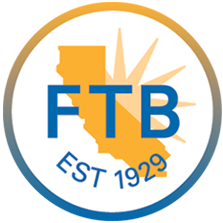Form 941 Due Date
Excise Tax Forms
Information Returns
Exempt Org. Forms
Extension Forms
FinCEN BOIR
General
As a business owner, submitting Form 941, the Employer's Quarterly Federal Tax Return, is one of your essential quarterly tasks. Failing to file this form on time could lead to IRS penalties, making it crucial to stay on top of your filing schedule. This guide will walk you through everything you need to know about Form 941, from understanding the form itself to avoiding penalties and filing it correctly on time.
What is IRS Form 941?
Form 941, also known as the Employer's Quarterly Federal Tax Return, is a document employers must submit to report payroll taxes, including federal income tax withholding and both the employer's and employee's shares of Social Security and Medicare (FICA) taxes. Even if no tax is due, the form must be filed quarterly, except in specific cases, such as for seasonal businesses or those closing permanently.
Filing Form 941
You have two options for filing Form 941: electronic filing or paper filing.
- Electronic Filing
E-filing is the most convenient and efficient method, providing several benefits, including automatic tax calculations, immediate submission, and confirmation that your return was accepted. To e-file, you can use IRS-authorized providers like TaxZerone, which makes the process faster and smoother. - Paper Filing
If you prefer paper filing, download Form 941 from the IRS website, fill out the required information, and mail it to the correct IRS address. While this method works, it’s slower and more prone to errors.
Key Deadlines for Filing Form 941
To comply with IRS regulations, Form 941 must be filed at the end of each quarter on the following dates:
- Q1 (January-March): April 30
- Q2 (April-June): July 31
- Q3 (July-September): October 31
- Q4 (October-December): January 31
Penalties for Failing to File Form 941
Missing the deadline for filing Form 941 or failing to pay the required taxes can result in penalties. The IRS imposes penalties based on how late the filing or payment is, and these penalties increase over time:
- 5% per month (up to 5 months) for late filing.
- 2% for tax deposits made 1-5 days late.
- 5% for tax deposits made 6-15 days late.
- 10% for tax deposits made 16 or more days late or within 10 days of receiving an IRS notice.
- 15% if taxes remain unpaid 10 days after the IRS issues a notice.
Additionally, if you file more than 60 days late, the penalty could be the lesser of $435 or 100% of the unpaid tax.
Tips for Avoiding Form 941 Penalties
Here are several strategies to ensure you avoid IRS penalties related to Form 941:
- Meet all deadlines: File your Form 941 on time and ensure your tax payments are submitted promptly.
- Accurate reporting: Double-check your calculations to ensure that you correctly report your tax liabilities.
- Correct payments: Pay the exact amounts due with proper methods, such as electronic payments or valid checks.
- Schedule your deposits: Follow the IRS guidelines for depositing payroll taxes based on your business's size and filing frequency.
Why Choose TaxZerone for E-filing Form 941?
TaxZerone is an IRS-authorized e-file provider that simplifies the entire Form 941 submission process. Here’s why TaxZerone is an excellent choice for filing:
- Smart validation tools to ensure your form is error-free.
- Instant notifications on the status of your filing.
- Affordable pricing options for small businesses.
- Support for Schedule B and Form 8974 for specialized filing needs.
With TaxZerone, you can e-file your Form 941 quickly, safely, and efficiently, minimizing the risk of penalties and ensuring you remain in compliance with IRS regulations.




